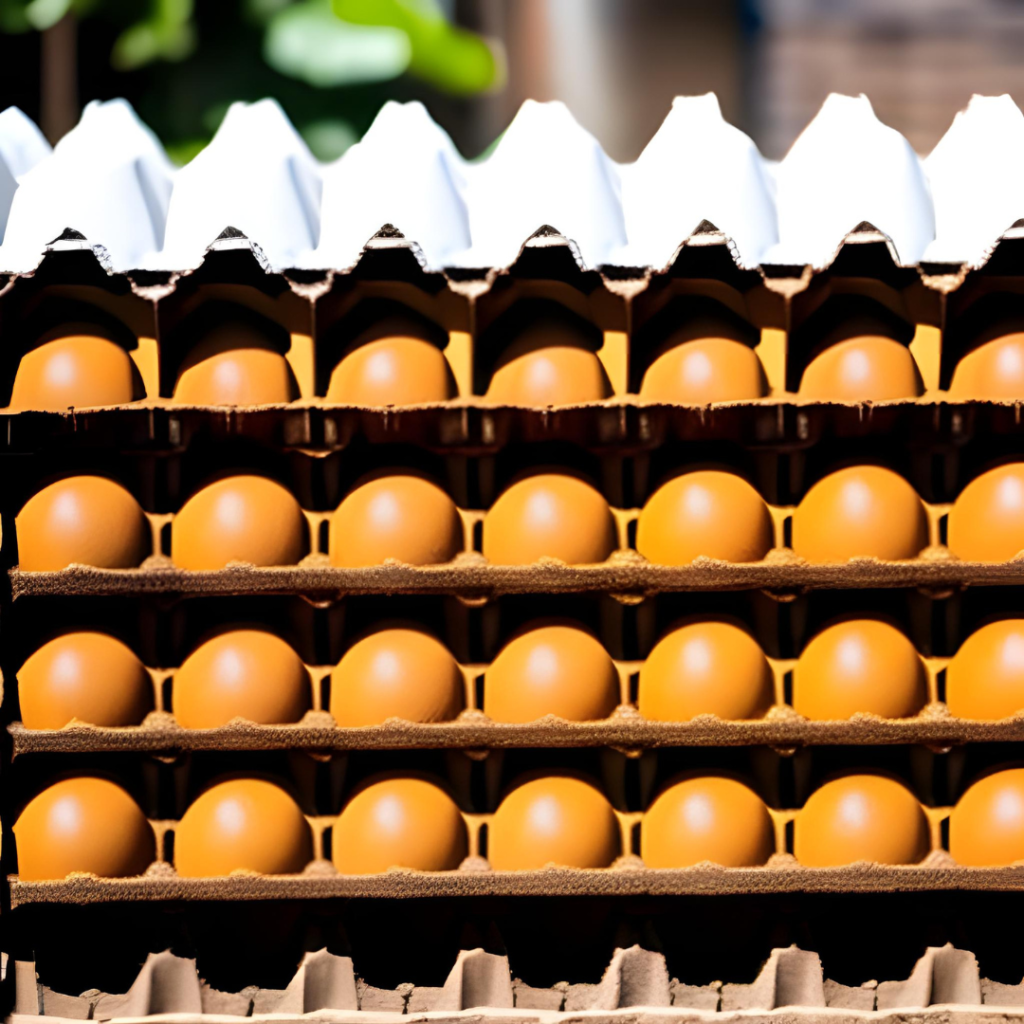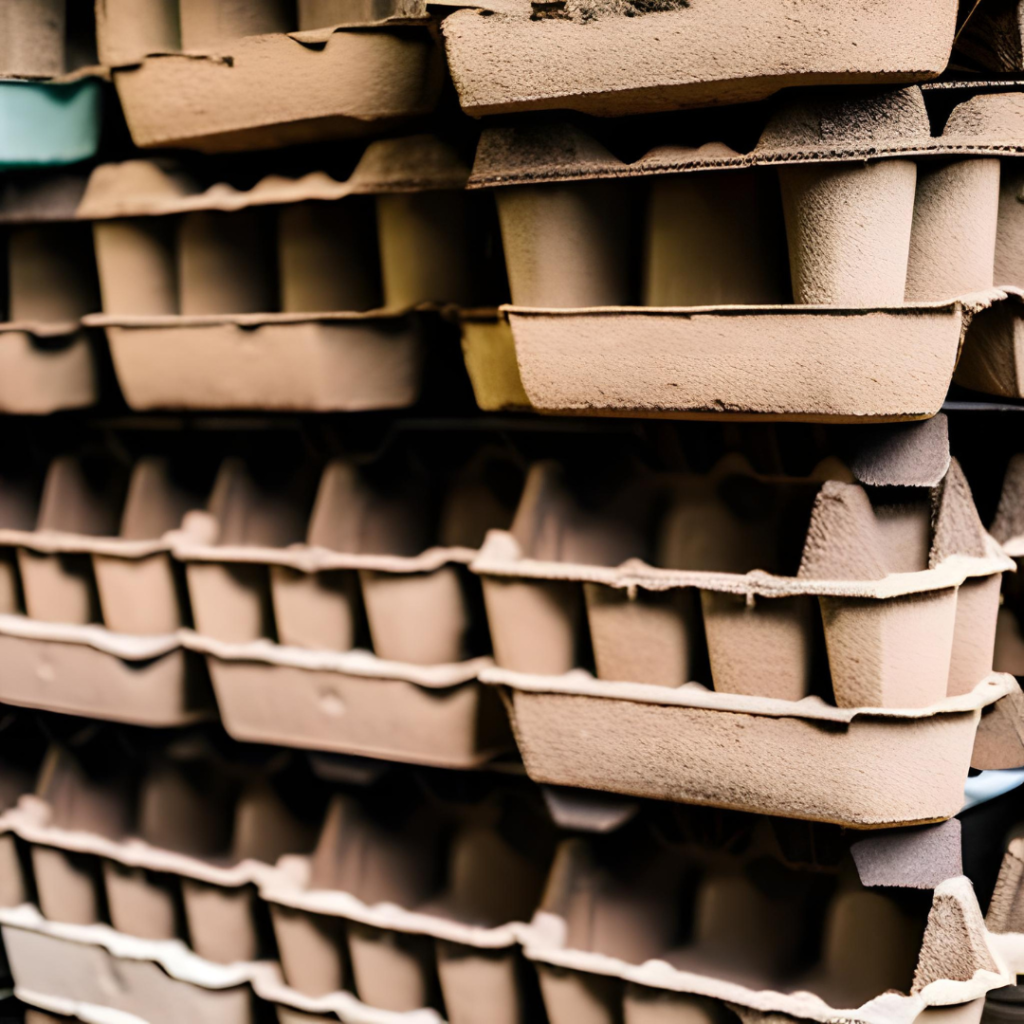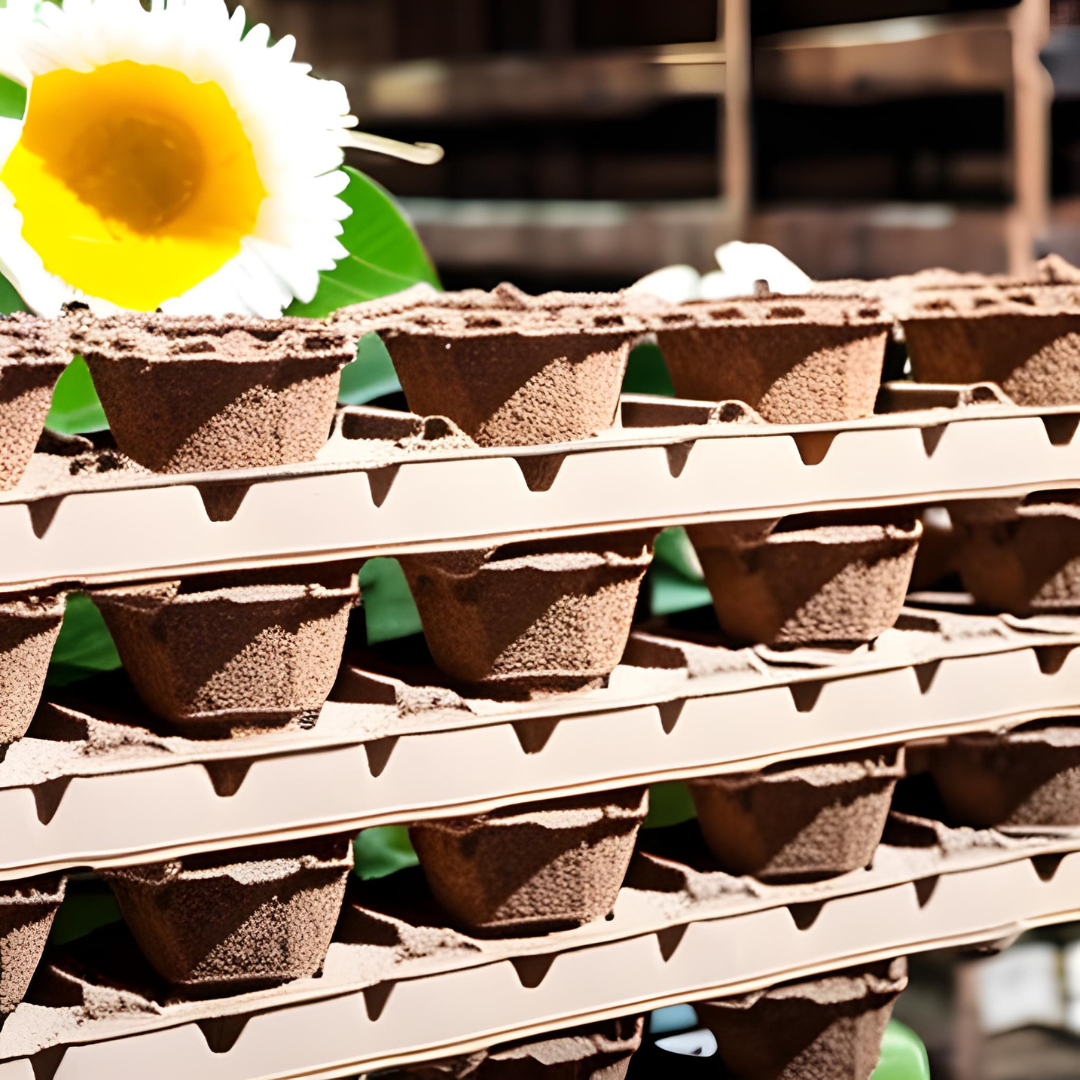The materials used in their production can have a considerable impact on the environment, and egg cartons play a key role in the preservation and transportation of eggs. Egg cartons for mashed eggs, often known as paper or cardboard cartons, are becoming more common as a more dependable alternative to foam or plastic cartons. We’ll go into the science of egg cartons in this blog post, including how they are made and why they are a dependable option for bundling eggs.

How Pulp Egg Cartons are Made:
How Pulp Egg Cartons are Made: Pulp egg cartons are typically made from recycled paper or cardboard, which are renewable and biodegradable materials. The manufacturing process involves several steps
- Collection and sorting of recycled paper or cardboard.
- Shredding and pulping the collected material to create a slurry.
- Forming the slurry into carton shapes using molds or machines.
- Pressing and drying the formed cartons to remove excess water and create a sturdy structure.
- Trimming and packaging the dried cartons for distribution.
Environmental Benefits of Pulp Egg Cartons:
2. Pulp egg cartons offer several environmental benefits compared to foam or plastic cartons:
- Renewable materials: Pulp egg cartons are made from recycled paper or cardboard, which can be sustainably sourced from forests and recycled materials, reducing the demand for virgin materials.
- Biodegradable: Pulp egg cartons are biodegradable, meaning they can break down naturally over time, reducing environmental pollution and waste.
- Recyclable: Pulp egg cartons can be recycled in many areas, reducing the need for new materials and promoting circular economy principles.
- Low carbon footprint: The production process of pulp egg cartons typically requires less energy and generates fewer greenhouse gas emissions compared to foam or plastic cartons.

Sustainable Packaging Choice:
Pulp egg cartons are considered a sustainable packaging choice due to their use of renewable materials, biodegradability, recyclability, and lower carbon footprint. By choosing pulp egg cartons, you can support sustainable packaging practices and contribute to environmental conservation efforts. Additionally, using pulp egg cartons can align with your business’s values and sustainability goals, appealing to environmentally conscious consumers.
Best Practices for Pulp Egg Carton Use:
- To maximize the sustainability benefits of pulp egg cartons, consider the following best practices:
- Source from certified suppliers: Choose pulp egg carton suppliers that offer certified products made from recycled or sustainably sourced materials.
- Promote recycling: Educate your customers and employees about the recyclability of pulp egg cartons and provide proper recycling instructions.
- Compost when possible: If composting is available in your area, consider composting used pulp egg cartons to further reduce waste and promote circular economy practices.
- Minimize waste: Optimize your inventory management to reduce excess carton waste and ensure efficient use of resources.
Pulp egg cartons are a sustainable choice for packaging eggs, as they are made from renewable materials, biodegradable, recyclable, and have a lower carbon footprint compared to foam or plastic cartons. Understanding the science behind pulp egg cartons and adopting best practices for their use can contribute to sustainability efforts and promote environmentally friendly packaging practices. Choose pulp egg cartons for a greener and more sustainable packaging solution for your eggs.


